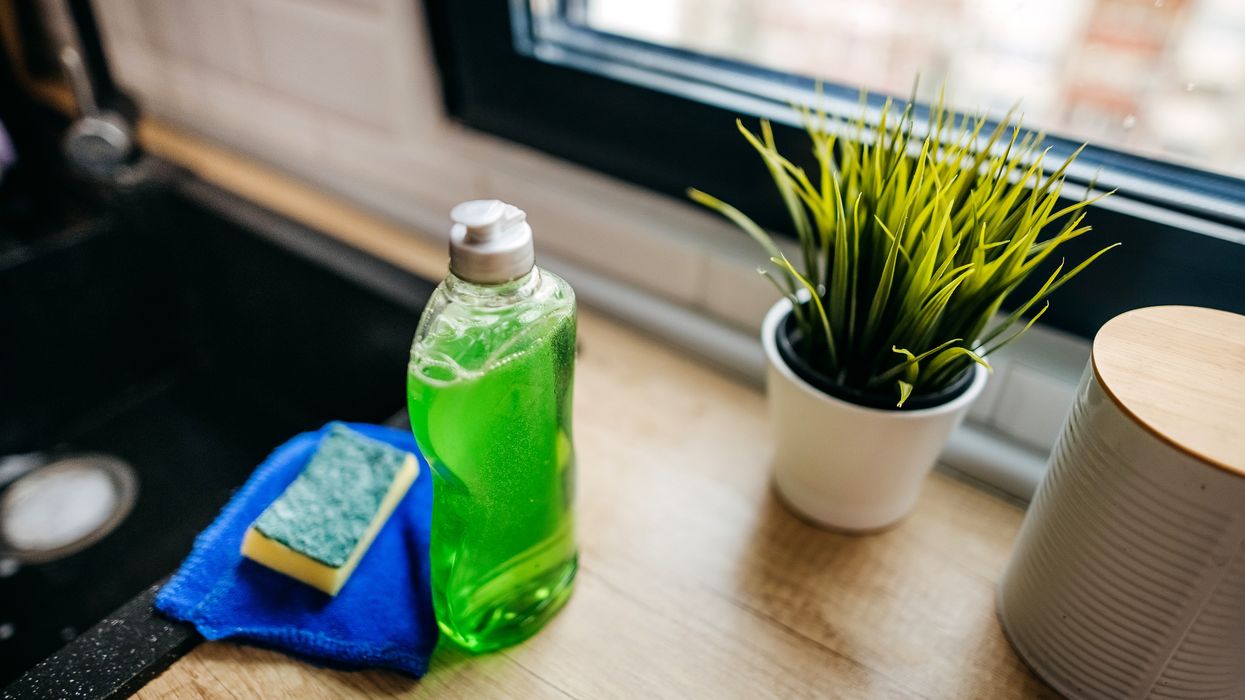UK households are being urged to reconsider their use of Fairy Liquid and other mainstream washing-up liquids due to concerns about their environmental impact, particularly the damage they may cause to marine life. From 2025, cleaning experts are encouraging a shift towards more sustainable washing-up habits.
While the plastic bottles used for washing-up liquids have long been an environmental concern, attention is increasingly being drawn to the chemical ingredients found inside them. Experts warn that many household washing-up liquids contain surfactants derived from fossil fuels. These compounds, which help break down grease and create foam, may be polluting waterways and harming aquatic ecosystems.
According to eco-conscious brand Sustainably Lazy, “mainstream brands use fossil fuel-derived surfactants, many of which end up in rivers and harm aquatic life.” These surfactants are not fully broken down after use and are flushed directly into water systems through household drains.
Ethical Superstore, an online retailer of environmentally friendly products, has also raised concerns. It highlights sodium lauryl sulphate (SLS), a common surfactant found in most conventional washing-up liquids, including Fairy Liquid. “SLS acts as a surfactant, meaning it reduces the surface tension of the water and creates foam, leading to extra cleaning power,” the company states. “But it’s not without its issues. After it goes down the plughole, it can linger in our waterways, endangering marine life and doing untold damage to the ecosystem.”
A peer-reviewed study published in the Journal of Applied Microbiology further supports these claims. The study explains that surfactants are widely used in household products such as soaps, detergents, and cleaning agents, and are inevitably discharged into water bodies. These chemicals can penetrate cell membranes, causing toxicity in aquatic organisms. The research also noted cases of gill damage and loss of eyesight in fish exposed to surfactants.
In addition to the chemical threat, plastic waste remains a pressing concern. The UK generates over 170 million tonnes of waste each year, and only about one-third of plastic packaging is recycled. In one example of long-term pollution, the Burnham Coastguard Rescue Team found a bottle of washing-up liquid on a beach in 2018 that was nearly 50 years old. The discovery underlined how durable and persistent plastic waste can be.
To address these concerns, some companies are offering more environmentally responsible options. Fairy has introduced a more sustainable version of its product — a refill carton designed to reduce single-use plastic. Available for £4.50 via Ocado, the refill carton can replenish a standard 370ml Fairy Liquid bottle more than twice and claims to cut plastic use by up to 85%. The carton is also recyclable.
A spokesperson for Fairy stated: “Fairy Max Power antibacterial washing-up liquid refill carton allows you to refill your 370ml upside-down bottle more than twice and helps you to save up to 85% of the plastic. The refill is recyclable.”
Beyond refill options, consumers can also explore alternatives such as solid washing-up bars and plant-based liquid detergents. Solid bars are particularly effective in areas with soft water and typically come with minimal packaging. Meanwhile, several plant-based washing-up liquids are now available in refillable or compostable containers.
As awareness of environmental issues continues to grow, UK consumers are being encouraged to examine their daily habits and make more sustainable choices when it comes to cleaning products. Switching to alternatives with biodegradable ingredients and refillable packaging could help reduce the impact on marine ecosystems and minimise household plastic waste.





